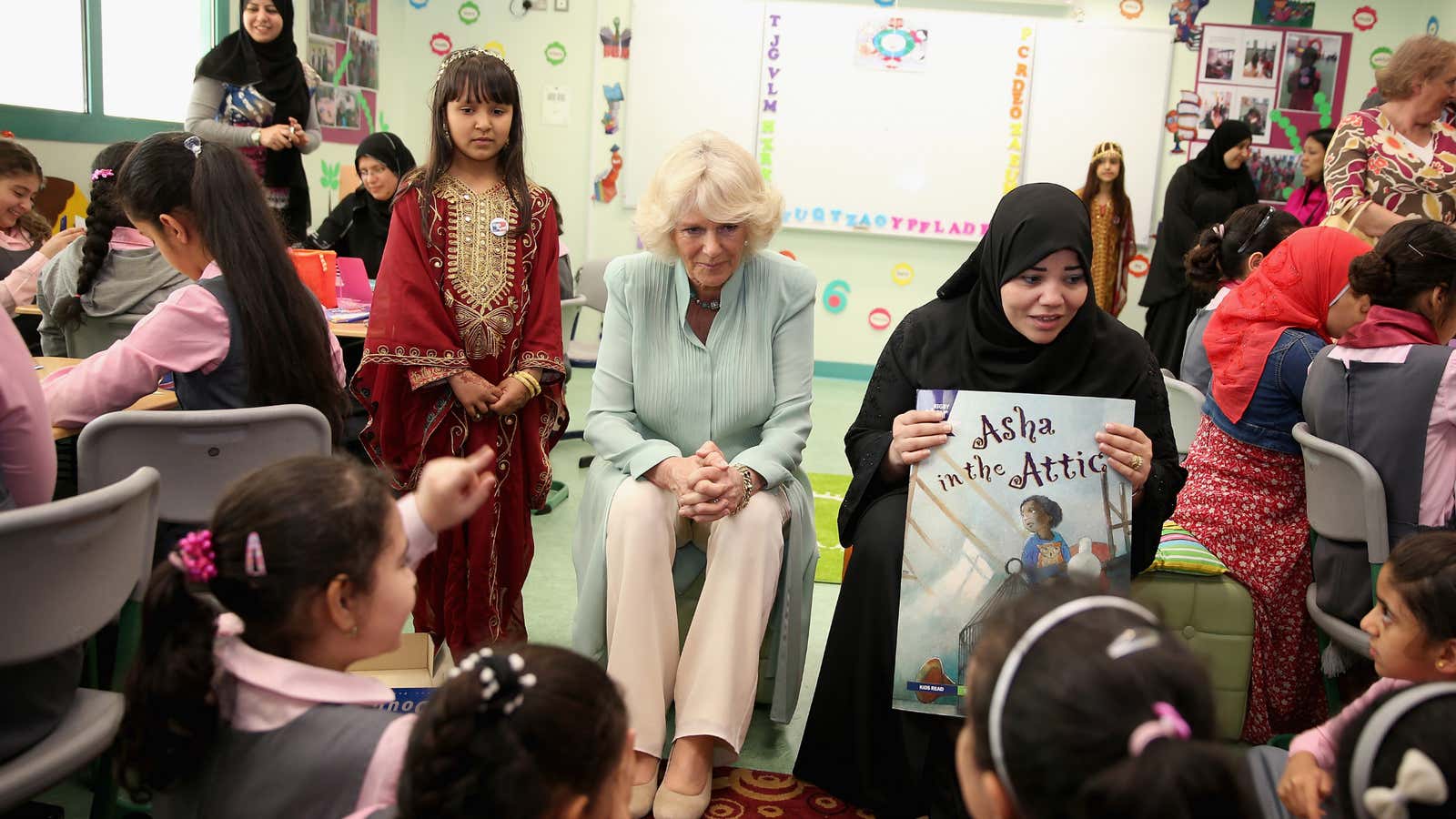In Qatar, where expats outnumber local Arabs nearly 8 to 1, there is a palpable concern among locals that the gas-rich nation has put its cultural identity on the selling block. With a steady influx of global businesses and Western law firms opening their doors in Doha, you’re more likely to hear the sounds of English banter on the Corniche than Arabic.
But Qatar is fighting back—much to the detriment of its future and that of its next generation. Last year, Qatar University reverted to Arabic as its primary language for business, law, social sciences and humanities as part of the country’s push to strengthen the use of Arabic language in public education. “Arabic is the mother tongue of most QU students so there is certainly an advantage to teach in Arabic,” says Nael Mohamad, a spokesman for Qatar University in an e-mail.
That may be true in the short run and for those students seeking public sector jobs within Qatar. But Qatar’s ambitions lie further West, making English a language of necessity for Qataris eager to be part of the large global marketplace. That’s especially true since Qatar won the right to host the FIFA 2020 World Cup. The tiny Gulf kingdom has committed to developing $60 billion worth of infrastructure projects ahead of the deal, ushering in a wave of foreign players eager to be a part of the development boom. Who better to work alongside the influx of foreigners in the private sector than local Qataris, fluent in English, who are adequately trained in the finer aspects of business and law?
Beyond its own infrastructure goals, deep-pocketed Qatar has become an aggressive investor in foreign assets. In February, Qatar Holding, a unit of Qatar’s sovereign wealth fund, said it will launch a $12 billion investment firm to buy assets globally. Such endeavors offer a unique opportunity for Qataris to play a larger, sustainable role in the shaping of their country’s economy. But to make a meaningful contribution, their skills must be on par with Western competitors.
There is no debate that Arabic is at the heart of Qatar’s cultural heritage. Even Robert Musgrove, chief executive of the Qatar International Court and Dispute Resolution Centre—an English common-law court established in 2009 to attract international business to Qatar—agrees. Yet, “similarly it is recognized that if there is a global language of commerce and law, it is English,” he said. “If Qatar is to develop lawyers whose ambition is to appear in international commercial courts of the world, they will need to be educated in international law in English. “
And business majors will need to understand a basic truth: most modern international business contracts are written in English. QU’s Mohamad said “a suitable level of specialized English will continue to be a requirement for graduation” and some elective courses will be offered in English. But that may not be enough to make QU graduates – a majority of whom are locals –competitive in today’s workplace. There are a number of foreign universities, such as Northwestern and Texas A&M universities, with campuses in Doha. They teach in English.
Graduates from these institutions will have an edge. And that edge may make all the difference.




